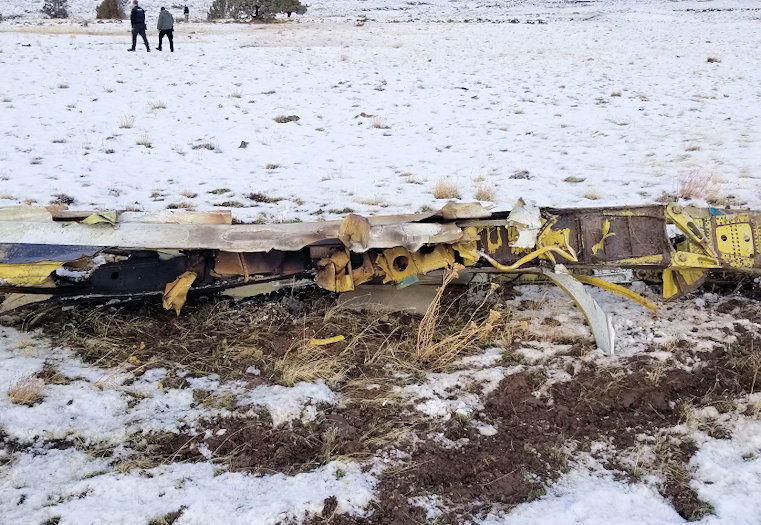Pilot killed in crash on Warm Springs Reservation was incapacitated, federal investigators say — but why is unknown

WARM SPRINGS, Ore. (KTVZ) – A 72-year-old Portland businessman killed in the January 2021 crash of his business jet on the Warm Springs Indian Reservation had apparently become incapacitated, federal investigators said, but they could not determine from the available evidence why that happened.
The National Transportation Safety Board issued its final report this week on the fiery, spiraling Jan. 9, 2021 crash of a twin-engine Cessna Citation C560 in the Mutton Mountains that killed Richard Boehlke.
Despite a flight plan indicating two people would be aboard, Boehlke was alone on the planned flight from Troutdale to Boise – although federal investigators said shortly after the crash that he was not certified to pilot that type of plane.
The NTSB said Boehlke apparently was having difficulty following air traffic controllers’ directions early in the flight as he piloted the complex, high-performance jet.
Investigators said he had extensive experience flying several types of planes, including jets, but did not have a type rating for that model of Cessna, “and the accident flight was likely the first time he had flown it solo,” after incomplete training about two months earlier, during which he “struggled significantly” with the plane’s new avionics suite.
Their review of Boehlke’s medical history found several conditions and medications he had not reported to the Federal Aviation Administration, but his injuries from the crash prevented gaining any useful information about natural disease during autopsy, and no toxicology tests were performed.
“None of the pilot’s known medical conditions or medications would have directly caused incapacitation, but the pilot may have had undiagnosed disease or had some acute event that would have incapacitated him,” the report said. “His age, gender, high blood pressure and hypertension placed him at risk for a heart attack or stroke.”
“While the available evidence is consistent with a loss of airplane control following pilot incapacitation, the reason for his incapacitation could not be determined,” investigators concluded.
The NTSB also noted that neither they nor the FAA responded to the crash scene due to the COVID-19 pandemic, but the wreckage was examined later and “there was no evidence of bird strike, in-flight fire or door opening.” The plane’s cockpit voice recorder was recovered, but an examination found it “sustained a pre-existing internal failure,” so there was no data from that or previous flights.
